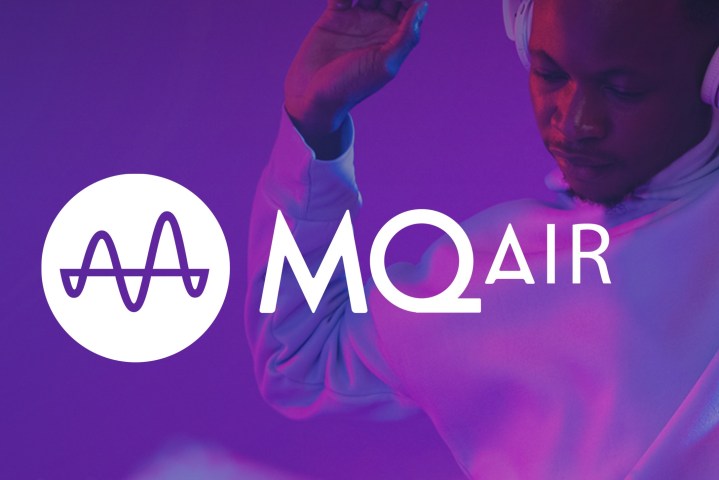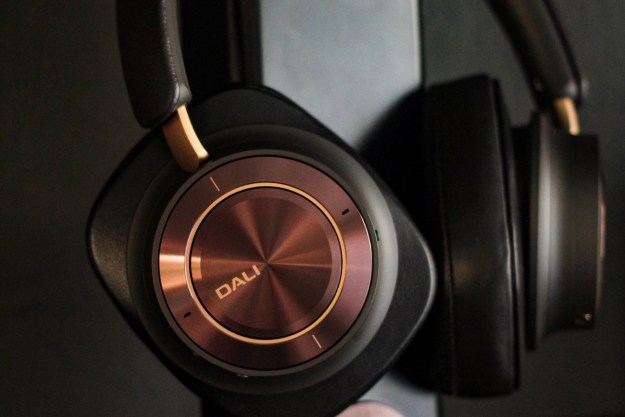Just when you thought it was safe to step back into the turbulent waters of Bluetooth audio, we have yet another Bluetooth codec to consider. In addition to SBC, AAC, LDAC, and the constantly expanding family of aptX codecs, you can now add MQair (em-kyoo-air).

MQair (known also by its technical label, SCL6) is the latest technology from MQA, the company founded by British audio pioneer Bob Stuart of Meridian Audio fame, and it has just been granted permission by the Japan Audio Society (JAS) to use the society’s Hi-Res Audio Wireless logo. It’s the third Bluetooth codec to receive the certification, the other two being LDAC and LHDC.
Hi-res audio Bluetooth codecs, generally speaking, are capable of streaming wireless audio at a bit-depth of 24 bits, and a sampling frequency of 96kHz or better. There’s been an increase in demand for products that use these codecs since Apple Music, Amazon Music, and other streaming services started to offer hi-res and lossless music within their libraries.
On its own, this hi-res certification isn’t a reason to start looking for products bearing the MQair logo — after all, LDAC, LHDC, and even Qualcomm’s aptX Adaptive meet this standard. However, MQair has another attribute that will resonate strongly with fans of the MQA audio format: it lets a phone transmit the MQA Core format over a wireless connection while keeping that content intact.
MQA aficionados will likely guess why this matters. One day, if a headphone or earbud company were to include full MQA decoding inside their digital-to-analog converter (DAC), MQair would be able to provide them with the correct audio stream. When (if) that happens, it will be the first time that Tidal subscribers will be able to hear Tidal Master tracks (which have all been encoded with MQA) at their maximum quality on a set of wireless headphones.
For now, this is all very moot. MQA hasn’t announced any partnerships with manufacturers who are going to support MQair, let alone support MQA decoding in their onboard DACs. Still, MQA says that if manufacturers are willing to jump on board, they’ll be able to add MQair using software on a wide variety of existing Bluetooth chipsets. Qualcomm’s aptX Adaptive, on the other hand, requires specific Qualcomm chips in order to work.
MQA says that even if you have no intention of passing MQA over MQair, the codec can still deliver benefits. “The goal of MQair is not to introduce blur or temporal distortion to the audio passing across the link,” Bob Stuart told Digital Trends via email. “This has been a common drawback with low bit rate codecs that impacts sound quality.”
MQair is a scalable codec, which means that just like LDAC, aptX Adaptive, and Samsung’s Scalable Codec, it can adjust its bit rate as needed based on a variety of possible conditions, like wireless congestion or interference. But unlike those other scalable codecs, MQair’s bitrate flexibility is massive, going as high as 20 Mbps, to “below 200 kbps” according to a press release from MQA.
That sounds impressive, but it’s worth noting that current Bluetooth connections, even under the most recent version (5.3), can’t support anywhere near 20 Mbps. Even Sony’s LDAC codec, which maxes out at 990 Kbps, often struggles to stay at this data rate, often dropping back down to one of its lower tiers, like 660 Kbps or 330 Kbps.
This brings up another question: Just how much bandwidth will MQair require to deliver on its signature promise of transmitting MQA intact over Bluetooth? And what happens when that bandwidth is reduced?
Those questions aside, 20 Mbps makes MQair an interesting choice for Wi-Fi streaming. Apple’s AirPlay technology is limited to 16-bit/44.1 kHz CD quality, Google’s competing Chromecast can go up to lossless 24-bit/96kHz, but MQA claims that MQair will — at its highest bitrate — “deliver bit-perfect PCM or MQA,” which opens the door to sampling rates higher than 96kHz.
MQA as both a company and an audio technology has been at the center of controversy for years. Some who have experienced it come away deeply impressed by the sound quality they hear, but there have also been plenty of detractors — most prominently Neil Young — who claim that MQA’s encoding and decoding destroys and/or modifies the original audio tracks in ways that are deemed contradictory to the company’s claims of superior quality.
There are also those who feel that the proprietary and license fee-requiring MQA system simply adds unnecessary cost and complexity when the open-source FLAC format can deliver the same or better results. Don’t be surprised if MQair attracts its own share of boosters, skeptics, and critics.
Editors' Recommendations
- Nothing’s new earbuds upstage Apple, Google, and Amazon by embedding ChatGPT
- Next-gen wireless headphones will get lossless hi-res audio with a little help from Qualcomm
- What is Auracast? The Bluetooth broadcast standard fully explained
- JLab jumps into hi-res and Bluetooth LE audio with $200 Epic Lab Edition earbuds
- Astell&Kern’s new headphone DAC is PlayStation-ready




